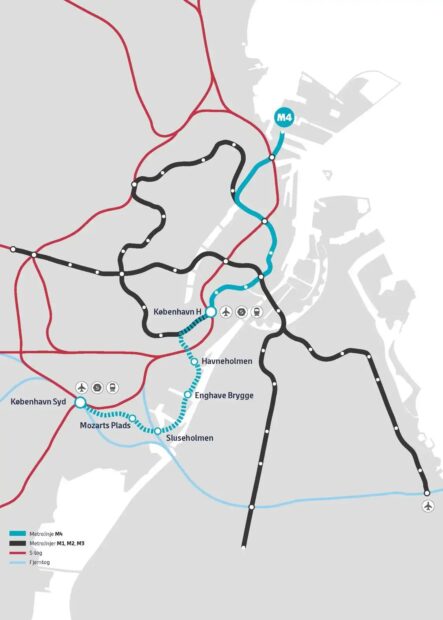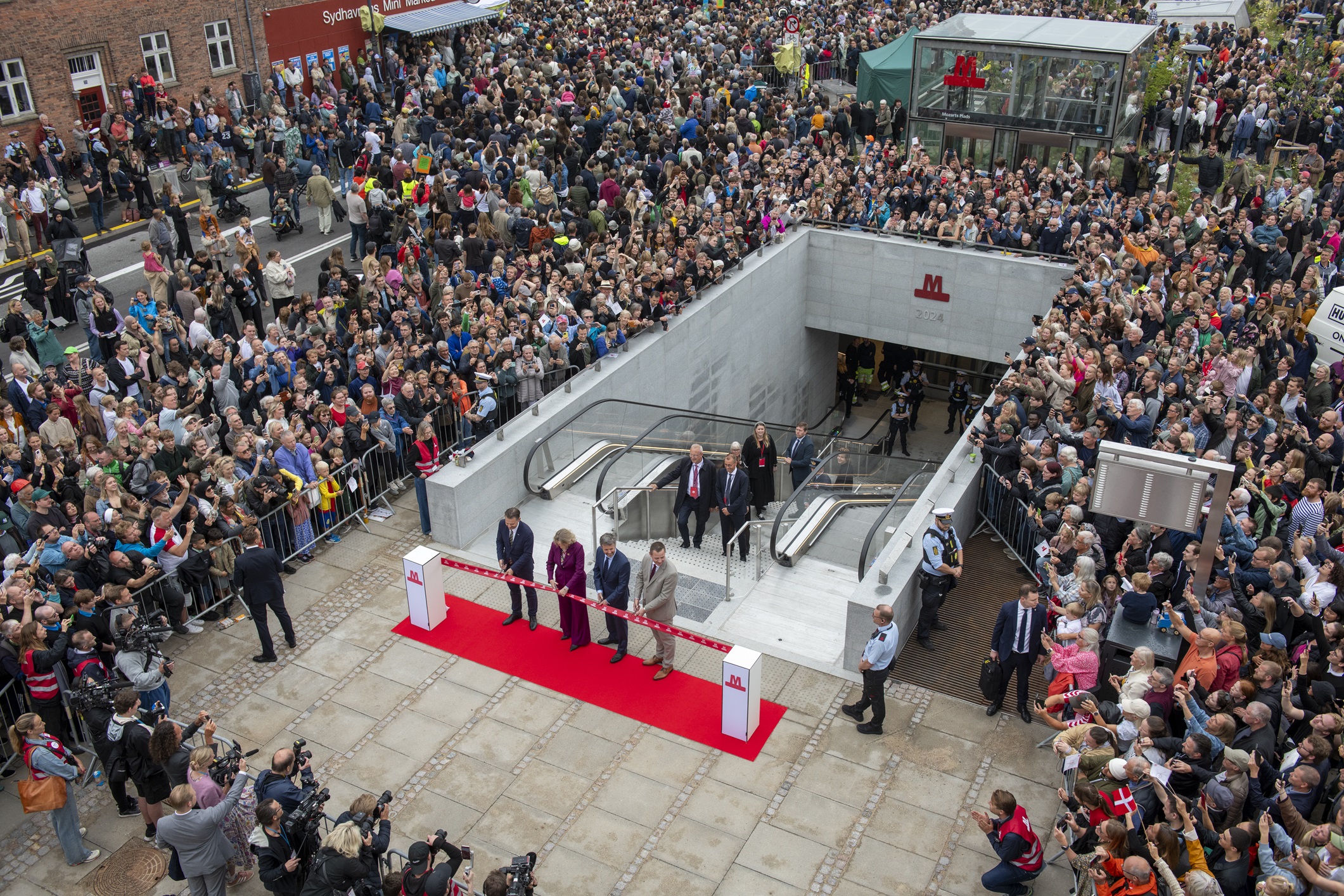The much-anticipated new M4 Metro extension to Sydhavn and Valby has opened.
Some 3000 people gathered at the ribbon cutting ceremony at Mozarts Plads yesterday, where King Frederik X of Denmark inaugurated the 5.7 kilometres of new tracks.
He was joined on stage by Copenhagen’s Lord Mayor Sophie Hæstorp Andersen, Frederiksberg’s mayor Michael Vindfeldt and Transport Minister Thomas Danielsen.
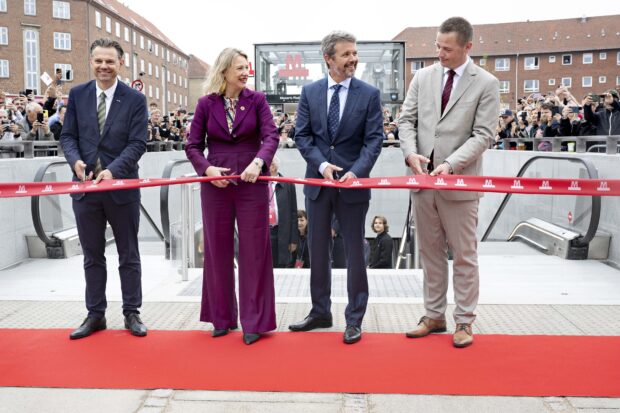
“If Anker Jørgensen had had a metro in his time, he could have been at work in Christiansborg in 10-15 minutes,” said Lord Mayor Sophie Hæstorp Andersen in her speech at the metro opening.
“This is one of the days I will never forget as Copenhagen’s Lord Mayor. With each new metro station, we lift the city, make everyday life easier and give everyone the opportunity to get from A to B in one of the most climate-friendly modes of transport.”
The M4 metro extension has been under construction for almost six years.
On the new southern part of the M4, you can travel directly between Orientkaj in Nordhavn to Copenhagen South in Valby via Østerbro, City, Vesterbro and Sydhavn.
Along the way, you can change to the M3 Cityringen at six stations and to lines M1 and M2 at Kongens Nytorv.
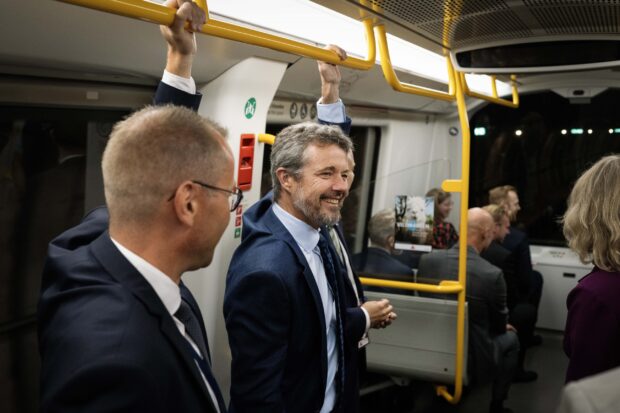
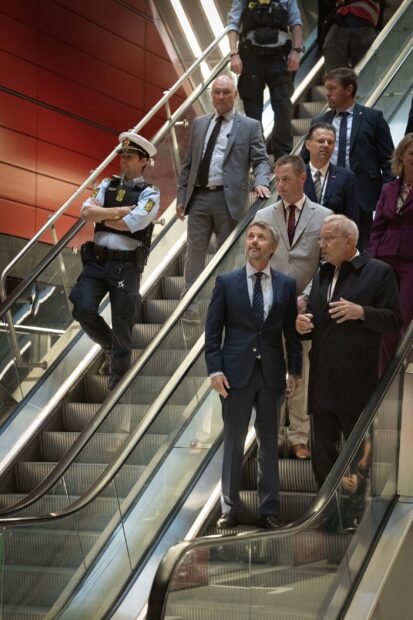
The journey time by Metro between Copenhagen South and Rådhuspladsen is approximately 10 minutes, and between Copenhagen South and Frederiksberg, approximately 17 minutes
Frederiksberg’s mayor Michael Vindfeldt also hailed the new connection, pointing out its benefits for his own municipality:
“The extension of the M4 to Sydhavn and Valby will also benefit Frederiksberg, as it makes it easier for our citizens to get around when the city is tied closer together and the collective offer is strengthened. After the opening of the new metro stations, it takes only 10 minutes to travel from Frederiksberg Allé to Enghave Brygge,” he said to a jubilant crowd waving flags, cameras and phones.
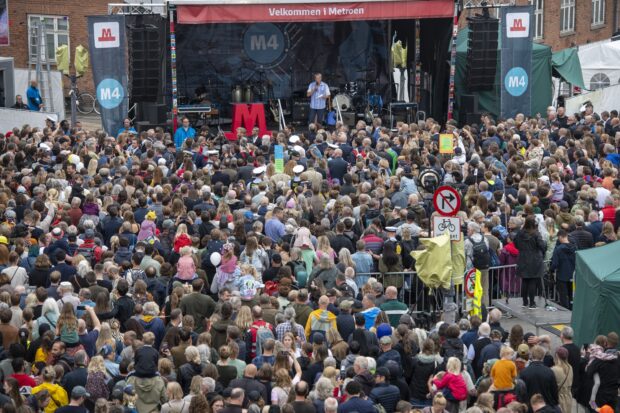
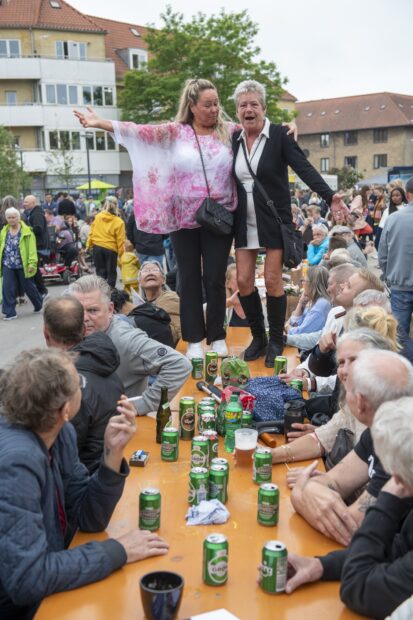
With the opening, it’s now possible to switch between metro and S-train at eight stations, and between metro and regional train at six stations.
The metro line runs around the clock with a high frequency. It is designed to better connect the new urban development areas and existing urban areas in Sydhavn and Valby. Overall, the total metro network now consists of 44 metro stations and 43 kilometers of tracks.
From 2030, the five new stations are expected to receive some eight million passengers annually, writes Metrokselskabet, the operating company behind Copenhagen’s metro system.
More than 135 million passengers are expected to travel by Metro in 2024.
